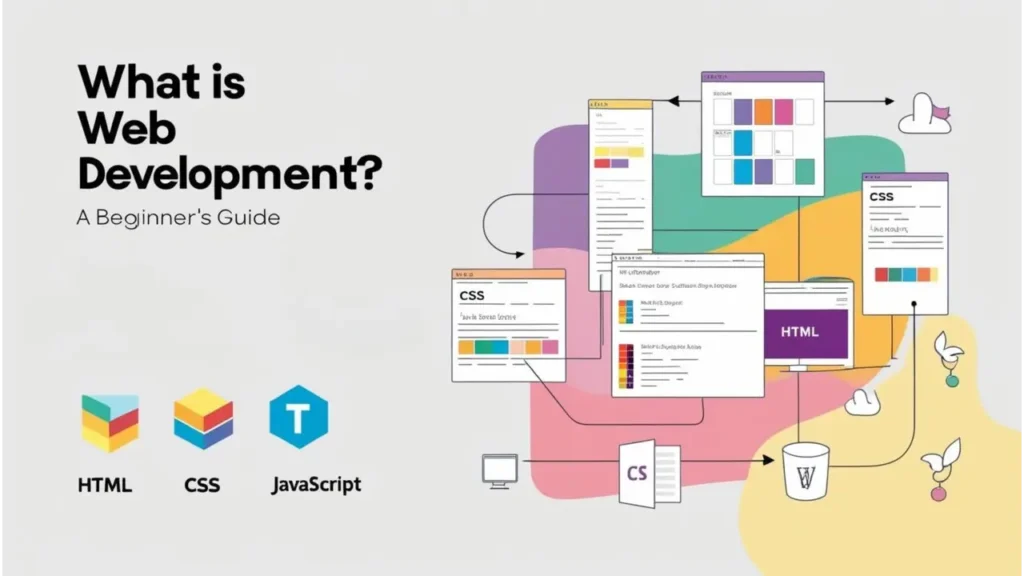In the bustling world of online shopping, where millions of products are vying for attention, E-Commerce SEO (Search Engine Optimization) plays a pivotal role in boosting the sales and visibility of online stores. With the rapid growth of e-commerce, online retailers face fierce competition, and it is critical to stand out from the crowd. SEO for e-commerce is more than just driving traffic; it’s about driving the right traffic — people who are ready to buy.
In this blog, we will dive deep into E-Commerce SEO, exploring why it’s essential, key strategies to implement, and how it can boost both sales and visibility for your online store. Whether you’re a seasoned e-commerce business or just starting, optimizing your site for search engines will increase your brand’s online presence and ultimately lead to more conversions.
Key Takeaways
- E-Commerce SEO is Essential
- Keyword Research is Crucial
- Optimize Product and Category Pages
- Focus on Technical SEO
- Content Marketing Enhances SEO
- Link Building Strengthens SEO
- Leverage Local SEO
- Track and Measure Results
- Avoid Common SEO Mistakes
Table of Contents
Understanding E-Commerce SEO
What is E-Commerce SEO?
E-Commerce SEO is the process of optimizing an online store’s website and its content to improve its visibility in search engine results pages (SERPs). The goal is to rank higher on Google, Bing, or any other search engines when users search for specific products or services that your online store offers.
Unlike traditional SEO, E-Commerce SEO focuses on optimizing product pages, category pages, descriptions, images, and user experiences to ensure that potential customers find your products organically. This organic traffic is crucial because visitors who land on your e-commerce website from search engines are more likely to be interested in your products, leading to better sales opportunities.

Why is E-Commerce SEO Important?
1. Increased Visibility
With millions of e-commerce websites available, making your store visible is the first step towards success. Most users don’t click beyond the first page of search results, which is why ranking higher is essential. E-Commerce SEO helps you achieve this by optimizing your content and making your products easier to find.
2. Cost-Effective Marketing
While paid advertising can bring quick results, it’s costly and stops delivering traffic once you stop paying. E-Commerce SEO, on the other hand, provides long-term benefits. Once your pages are well-optimized and ranked high, they can consistently drive organic traffic without ongoing ad spend.
3. Targeted Traffic
An optimized e-commerce site brings in highly targeted traffic—people actively searching for products like yours. This results in higher conversion rates because you’re reaching customers at the moment they’re ready to buy.

4. Builds Trust and Credibility
Users tend to trust search engines, especially Google. When your store ranks highly in search results, it builds trust with potential customers. People associate high rankings with authority, making them more likely to buy from you rather than a competitor.
5. Better User Experience
Effective E-Commerce SEO also improves the overall user experience. Optimized websites tend to load faster, offer easy navigation, and provide useful information, all of which contribute to better customer satisfaction and loyalty.
Key E-Commerce SEO Strategies to Boost Sales and Visibility
1. Keyword Research
Keyword research is the backbone of any SEO strategy, especially for e-commerce websites. You need to identify the keywords that potential customers use when searching for products. These keywords should be integrated into your product titles, descriptions, meta tags, URLs, and content.
How to Find the Right Keywords
- Use Tools: Utilize tools like Google Keyword Planner, Ahrefs, or SEMrush to find relevant keywords with high search volumes and low competition.
- Focus on Long-Tail Keywords: Long-tail keywords are more specific and often less competitive. For example, instead of targeting “shoes,” try targeting “men’s running shoes under $50.”
- Analyze Competitors: Check which keywords your competitors are ranking for and see if you can target similar or related terms.
2. Optimize Product Pages
Each product page on your e-commerce site is an opportunity to rank in search engines, so it’s crucial to optimize these pages with E-Commerce SEO best practices.
Key Elements to Optimize on Product Pages:
- Product Titles: Include the primary keyword and make it descriptive. Instead of just “Running Shoes,” use “Men’s Blue Running Shoes – Lightweight & Breathable.”
- Meta Descriptions: Write compelling meta descriptions (up to 160 characters) that entice users to click. Include a call to action and the primary keyword.
- Product Descriptions: Don’t rely on manufacturer descriptions. Write unique, detailed descriptions for each product, incorporating the target keywords naturally.
- High-Quality Images: Optimize images with descriptive file names (e.g., mens-running-shoes.jpg) and include alt tags with the relevant keyword.
- User-Generated Content: Encourage customer reviews and ratings, as they add fresh, unique content to the page, which search engines love.
3. Technical SEO
Technical SEO refers to the non-content elements of your site that can affect search engine visibility. Ensuring that search engines can crawl, index, and navigate your e-commerce site is essential for E-Commerce SEO.
Key Technical SEO Factors:
- Site Speed: A fast-loading website improves user experience and is a ranking factor for Google. Use tools like Google PageSpeed Insights to test and improve your site’s loading times.
- Mobile-Friendliness: More than half of online shopping happens on mobile devices. Ensure your website is responsive, providing a seamless experience across all devices.
- Structured Data (Schema Markup): Use structured data markup to help search engines understand the content on your site better. This can enhance your search listings with rich snippets, like product reviews, prices, and availability.
- XML Sitemap: Submit an XML sitemap to search engines so they can easily find and index your product pages.
- Canonical Tags: Avoid duplicate content issues (common in e-commerce stores) by using canonical tags to tell search engines which version of a page is the “master” copy.

4. Optimize Category Pages
Category pages are often overlooked, but they can be powerful landing pages for E-Commerce SEO. Optimizing these pages can help you rank for more general keywords that cover a broader set of products.
How to Optimize Category Pages:
- Use Descriptive Titles: Include primary keywords that reflect the category.
- Add Unique Descriptions: Write a brief paragraph at the top of each category page that includes relevant keywords.
- Internal Linking: Link to top-selling or featured products within the category.
- Breadcrumb Navigation: Implement breadcrumb navigation to make it easy for users (and search engines) to understand your site structure.
5. Content Marketing for E-Commerce SEO
Content marketing is a powerful tool for driving organic traffic and enhancing your store’s SEO. It not only improves your search engine rankings but also engages your audience, builds authority, and keeps customers coming back.
Types of Content to Create:
- Blog Posts: Write about topics related to your products. For example, if you sell fitness equipment, you can create blog posts on workout routines, diet tips, or product reviews.
- Guides and Tutorials: Offer in-depth guides that help users understand how to use your products or make buying decisions.
- Videos: Video content can boost engagement and improve your site’s SEO. Create product demos, how-to videos, or even customer testimonials.
6. Link Building for E-Commerce SEO
Building high-quality backlinks is a crucial off-page SEO strategy. Backlinks from authoritative websites signal to search engines that your site is trustworthy and credible.
Strategies for E-Commerce Link Building:
- Guest Blogging: Write guest posts on industry-related blogs and include links back to your e-commerce site.
- Influencer Partnerships: Partner with influencers who can review your products or feature them in their content, providing a natural backlink to your store.
- Supplier and Manufacturer Links: If you sell products from specific brands, ask the manufacturer to link back to your site as an official retailer.
7. Local SEO for E-Commerce
If your online store has a physical location or serves a specific region, local SEO is essential. Local SEO ensures that your e-commerce store shows up in local searches.
How to Optimize for Local SEO:
- Google My Business: Claim and optimize your Google My Business listing with accurate information about your store.
- Local Keywords: Use keywords that include your location, such as “best women’s shoes in New York.”
- Customer Reviews: Encourage satisfied customers to leave reviews, as this can improve your visibility in local searches.
Tracking and Measuring Your E-Commerce SEO Success
To ensure your E-Commerce SEO efforts are paying off, you must regularly track and analyze your progress. Several tools can help with this:
- Google Analytics: Track organic traffic, user behavior, and conversion rates.
- Google Search Console: Monitor search performance, keyword rankings, and technical issues.
- SEMrush or Ahrefs: Use these tools to track keyword rankings and backlinks.
By keeping an eye on these metrics, you can identify what’s working and adjust your strategy as needed.

Common E-Commerce SEO Mistakes to Avoid
Even with the best intentions, there are common E-Commerce SEO mistakes that can hurt your rankings:
- Thin Content: Avoid having product pages with little to no content. Each product page should have a unique, descriptive, and keyword-optimized text.
- Duplicate Content: This is especially common with product descriptions. Make sure each product page has unique content, or use canonical tags where necessary.
- Ignoring Mobile Optimization: Ensure your e-commerce site is mobile-friendly, as search engines prioritize mobile-first indexing.
- Neglecting Technical SEO: Regularly audit your site for technical SEO issues such as broken links, slow load times, or crawl errors.
To know more, click here
F&Q
What is E-Commerce SEO?
E-Commerce SEO is the process of optimizing an online store’s website and content to rank higher in search engine results, driving organic traffic, and increasing sales.
Why is SEO important for my e-commerce store?
SEO increases your store’s visibility, bringing in targeted organic traffic from users searching for your products, leading to higher sales and a better user experience.
How do I find the right keywords for my products?
Use keyword research tools like Google Keyword Planner, SEMrush, or Ahrefs to identify relevant, high-traffic keywords. Focus on long-tail keywords for more specific searches.
How do I optimize my product pages for SEO?
Optimize product titles, descriptions, and meta tags with relevant keywords. Use high-quality images with optimized file names and alt text, and encourage user-generated reviews.
What is technical SEO, and why is it important?
Technical SEO ensures search engines can properly crawl and index your website. Key elements include site speed, mobile-friendliness, structured data, and avoiding duplicate content.
How can content marketing improve my e-commerce SEO?
By creating engaging blog posts, guides, videos, and other content, you can attract more organic traffic, build authority in your niche, and improve overall search rankings.
What are backlinks, and how do they affect SEO?
Backlinks are links from other websites to yours. High-quality backlinks from reputable sources improve your site’s authority and can significantly boost your search engine rankings.
Is local SEO important for an online store?
If your store has a physical location or serves a specific region, local SEO is important. It helps you appear in local search results, driving more traffic from nearby customers.
How long does it take to see results from E-Commerce SEO?
SEO is a long-term strategy. It can take several months to see significant results, but the payoff is sustainable, ongoing organic traffic.
What are common SEO mistakes to avoid in e-commerce?
Avoid thin or duplicate content, poor mobile optimization, slow site speeds, and neglecting technical SEO issues like broken links or poor site structure.
Conclusion
In the competitive world of online shopping, E-Commerce SEO is essential for boosting sales and visibility. From conducting thorough keyword research and optimizing product pages to building high-quality backlinks and creating engaging content, every aspect of E-Commerce SEO contributes to the success of your online store.
By implementing the strategies outlined in this guide, you can enhance your store’s online presence, attract targeted traffic, and, most importantly, increase sales. SEO may take time, but the long-term benefits are well worth the effort. Optimize your e-commerce store today and watch your business grow exponentially.
By consistently following best practices in E-Commerce SEO, you not only ensure that your store remains competitive but also build a sustainable model for long-term growth.
Connect with us today to start optimizing your online store for success! Click here












